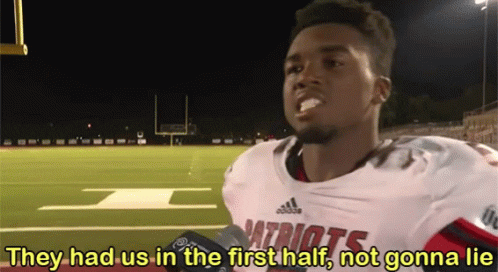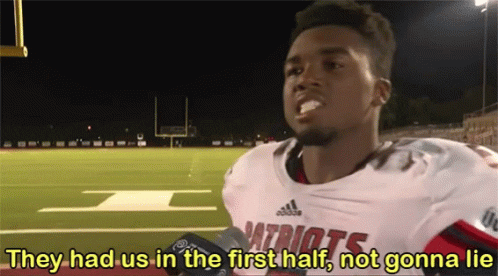A Realistic Reset
Did you know that only 16% of people actually see their New Year resolutions through and most people usually give up after about 6 weeks?
Self efficacy: the belief we have in our own abilities, specifically our ability to meet the challenges ahead of us and complete a task successfully
It is officially 2023, so let me first start out by saying Happy New Year!
I’m excited about today’s newsletter because of its timeliness. Did you know that only 16% of people actually see their New Year resolutions through and most people usually give up after about 6 weeks? Meaning some of us are half way to giving up (if we haven’t already).
Hopefully after reading today’s newsletter you have what you need to keep going! I want to dive deeper into why and how a process over outcome approach may be a better option. I’ll also note here, prepare for many bullet points!
Before we get into that, I am a lover of context and found the origin of New Years resolutions pretty interesting, so here’s a quick history lesson:
The idea of New Year resolutions date back ~4000 years ago to ancient Babylon. Babylonians would celebrate the New Year during mid-March with a 12-day festival called Akitu. They would crown a new king and make promises to the gods (usually to pay their debts and return what they had borrowed) in return for good health and favor.
The Romans, later in 46 B. C., adopted the Babylonian New Year and its tradition of resolutions but aligned it with the Julian calendar , which declared January 1st as the start of the new year. January was named after the two-faced Roman god, Janus, who looks forward for new beginnings as well as backward for reflection and resolution. The Romans would offer sacrifices to Janus and make promises of good behavior for the year ahead.
Over the years, despite its traditionally religious roots, a major shift has happened: instead of people making promises to the gods, many resolutions revolve now around oneself and goals of self improvement.
Now that we are up to speed, I wanted to understand what resolutions people were making and why we struggle to see them through. I was able to identify three high level themes of resolutions:
Health (ex. workout more, eat healthier, get better sleep)
Financial (ex. save more money, spend less, invest)
Time (ex. spend more time with family, spend less time on social media, learn a new skill)
Any of these sound familiar? LOL. Some of these used to be on my list too. But why are most of our efforts falling short? Reading and research will say it is because we:
Set unrealistic expectations
Lack accountability
Lack clarity
All things which I do believe are contributing factors. However, I would argue that our likelihood in either succeeding or falling short starts before we even write down a single resolution. It starts with our focus.
Many of us are writing down resolutions that heavily focus on the outcome we want instead of the process it will take to achieve it. Saving money, working out more, and spending less time on social media are all things most people cannot just wake up and do, let alone sustain. A conscious change must occur. This is where I believe that the approach of being process focused over outcome focused comes in.
Being outcome focused means your attention is on the ultimate result that you want to achieve, such as learning a new skill or buying a home. Being process focused means your attention is on the actions or behaviors that you need to repeat in order to reach your goal, e.g. spending an hour each night practicing that new skill or saving $500 per paycheck for a down payment.
The reason I love the idea of differentiating focus is because I’ve had several conversations around this and realized many of us have an end destination in mind but put hardly any emphasis to the journey that will get us there; and by being bound to a specific outcome, we remove the freedom and flexibility to revel in that journey.
By choosing process over outcome, we give ourselves room to change our mind when we come across new information, go deeper into an area we find interest in, and keeps you from getting discouraged anytime something doesn’t go as expected.
Other benefits of being process focused:
You become more clear and tactical, making accountability easier
You become realistic
You are working to build consistent habits
You are focused on what you actually can control
You are able to enjoy the ups and downs of the process instead of aiming for perfection 🙂
I came across this article while prepping to write and loved how the author, Matthew, outlined this:
“Lots of people try to get healthy by setting goals like: never eat added sugar. Notice how terrible that goal is. You can only fail it. There is no such thing as succeeding.
Instead, set into motion a process of finding replacements for the foods you know you consume that have added sugar. This is a longterm change, and the process of trying new foods and updating the pantry can be fun. Maybe it leads you into a detour learning about fermented foods. You start making your own kimchi as a replacement for that afternoon snack. The process of replacing foods has led to a whole new hobby! This would never have happened if you just focused on your (unattainable) goal.”
So for some of you who might have “eat healthier” as a resolution, a more refined approach is:
Outcome focused: Decrease added sugar intake
Process focused: Find 1 food to remove and it’s replacement each month of 2023
From there you can make a Pinterest board of potential recipes and replacements, make a list of all potential things to try, ask friends to come taste test with you, etc. Options are endless in finding ways to incorporate it into your regular life as something you look forward to.
For full transparency, this is a goal I pulled from my own list and I’ll say it’s simple, but not easy. Honey in certain things just don’t do what sugar can 😭.
For me, understanding this not only changed my thought process, but my level of expectancy, self efficacy, and grace. Processes create habits which predetermine the success and longevity of goals. And before wrapping this up, I want to point out goals and habits aren’t mutually exclusive. They are constantly intertwined and feed off of each other.
Working to create processes and habits can be really hard. It requires discipline, persistance, patience, and focus. But this is why I personally love new years resolutions. It is us acknowledging the things we want in life will require intentional effort on our end — and that we’re willing to do it.
Hopefully something above stuck and gave you the extra boost you needed to keep going. Below are some questions and resources I’ll leave you with!
With love always,
Jamie ✈️ 🌎
Questions I’m thinking through:
Are my current habits aligned with the goals I wrote down for this year?
What process do I need to set in place to create/remove a new habit?
Can my accountability partner clearly tell someone what their being held accountable too?
Links I’m loving:




